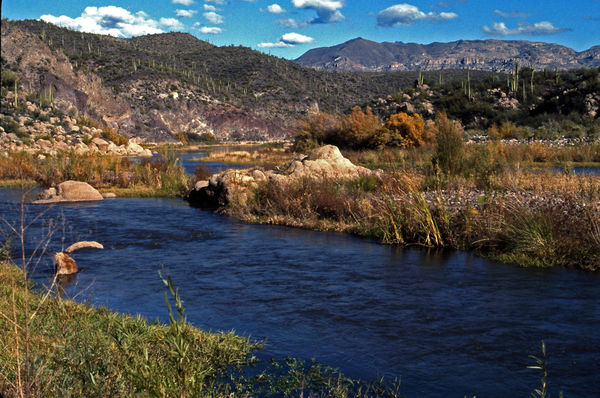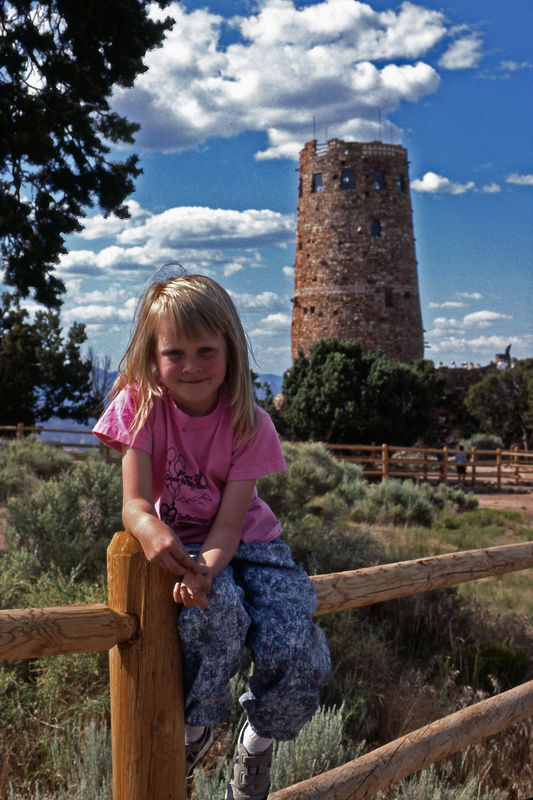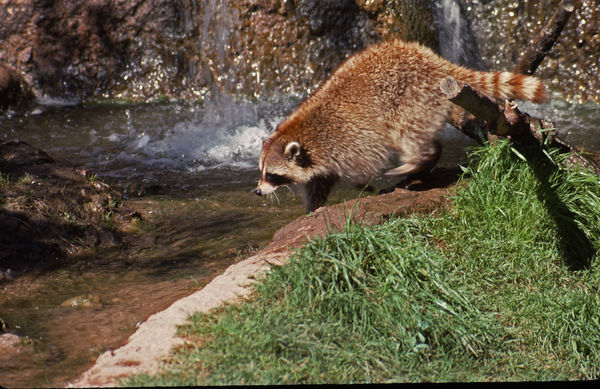Convert Color Slides to Digital
Mar 24, 2015 09:18:54 #
Does anyone have personal experience as to the most effective way to do this? I have approx 2000 to convert, and while those from Kodak still show perfect color, I will have to correct the Agfa slides as they have shifted to a purple hue.
Mar 24, 2015 09:30:26 #
PeterGdev wrote:
Does anyone have personal experience as to the most effective way to do this? I have approx 2000 to convert, and while those from Kodak still show perfect color, I will have to correct the Agfa slides as they have shifted to a purple hue.
Are all 2000 slides really worth scanning?
I have several thousand as well and have been culling through them and found many after many years are not really woth saving. That said.
I use an Epson V750 scanner that does a great job with slides and many formats of film up to 8x10. So if you have some old family negatives from the old folding cameras it can handle that as well. I believe Epson has upgraded the V750 to the V850.
Again I think it is great. Here are a couple of slide scans that needed help and the V750 did a great job restoring.
Mar 24, 2015 09:50:42 #
RS
Loc: W Columbia, SC
I have an 'HP Photosmart C8180 All-in-One' copier/pinter which has an adapter for copying slides, and it does a pretty good job copying to a memory chip or directly to a computer. It has two adaptors; one which will hold four individual slides at a time, or one where you can enter a strip of uncut 35mm slide film, if you have any in that fashion. Make sure that you get the dust off the slides, because this copier picks up much of that, too.
Like you, I have many years of slides that I want to convert 'someday' when I have time to 'get around to it.'
Good luck, and I will be watching to see if others have better processes for converting slides.
Like you, I have many years of slides that I want to convert 'someday' when I have time to 'get around to it.'
Good luck, and I will be watching to see if others have better processes for converting slides.
Mar 24, 2015 09:59:19 #
RS
Loc: W Columbia, SC
Architect1776 wrote:
Are all 2000 slides really worth scanning? br I ha... (show quote)
Wow!! Those are great!!
I agree with you that not all slides will be worth trying to convert, but I have to dig into a box of old slides that go back to the early '60s when I joined the Army and go on thru my time in Vietnam as well as bouncing around on other various assignments. If nothing else, it will be a time to reminisce during my downhill side of life.
Mar 24, 2015 10:29:05 #
RS wrote:
Wow!! Those are great!!
I agree with you that not all slides will be worth trying to convert, but I have to dig into a box of old slides that go back to the early '60s when I joined the Army and go on thru my time in Vietnam as well as bouncing around on other various assignments. If nothing else, it will be a time to reminisce during my downhill side of life.
I agree with you that not all slides will be worth trying to convert, but I have to dig into a box of old slides that go back to the early '60s when I joined the Army and go on thru my time in Vietnam as well as bouncing around on other various assignments. If nothing else, it will be a time to reminisce during my downhill side of life.
The Epson V750/V850 has an ICE setting that helps with scratches and minute dust as well.
You can preview the corrections as well and adjust the amount and adjust sharpness. Very capable and with all your slides worth the cost as you have control over the final product.
Mar 24, 2015 11:10:03 #
Architect1776 wrote:
The Epson V750/V850 has an ICE setting that helps with scratches and minute dust as well.
You can preview the corrections as well and adjust the amount and adjust sharpness. Very capable and with all your slides worth the cost as you have control over the final product.
You can preview the corrections as well and adjust the amount and adjust sharpness. Very capable and with all your slides worth the cost as you have control over the final product.
Yeah, ICE is great stuff. It does not like Kodachrome, however, since that film has a "topography" on the emulsion side... raised ridges corresponding to dye build-up for dense areas. To get around this, turn the slides over, so the base side faces the scanner. Then flop it (mirror the image) in software. At least ICE will then zap dust on the base.
PEC-12 film cleaner is very helpful to have around when scanning old film, as is a StaticMaster anti-static brush.
If you have any glass-mounted slides (Gepe or Wess...), you probably should remove the film chips from them and clean with film cleaner. Glass tends to trap mold/mildew.
One more note... since scanning is tedious, do the best job you can the first time, so you won't have to do it again. I always scan at a high resolution and then down-sample/down-size the image later, if I don't need hi-res. That way, I can make large prints if someone wants one.
Mar 24, 2015 11:14:00 #
burkphoto wrote:
Yeah, ICE is great stuff. It does not like Kodachr... (show quote)
Yes on the Kodachrome. The scanner will "flop" the scan as it is being done.
Mar 24, 2015 11:24:40 #
I'll cast another vote for the Epson scanners. I think mine is a V550. The cheaper ones can be slower and take fewer slides than the expensive ones, but results can be impressive.
An example is a photo I shot on TRI-X 40 years ago of my wife. Back then I had a very good darkroom, I did my best to make a print that I've kept. I got the negative out of the file, scanned it, touched it up in Lightroom and printed it on a Canon Pro-100. I was stunned to see that the new technology print is about twice what the old darkroom print was.
Other examples are slides I took when the Navy sent me to Iran. Unfortunately, some are just as out of focus as when I shot them, but the Epson scans are spot on.
An example is a photo I shot on TRI-X 40 years ago of my wife. Back then I had a very good darkroom, I did my best to make a print that I've kept. I got the negative out of the file, scanned it, touched it up in Lightroom and printed it on a Canon Pro-100. I was stunned to see that the new technology print is about twice what the old darkroom print was.
Other examples are slides I took when the Navy sent me to Iran. Unfortunately, some are just as out of focus as when I shot them, but the Epson scans are spot on.
Mar 24, 2015 11:52:28 #
[quote=bsprague]I'll cast another vote for the Epson scanners. I think mine is a V550. The cheaper ones can be slower and take fewer slides than the expensive ones, but results can be impressive.
An example is a photo I shot on TRI-X 40 years ago of my wife. Back then I had a very good darkroom, I did my best to make a print that I've kept. I got the negative out of the file, scanned it, touched it up in Lightroom and printed it on a Canon Pro-100. I was stunned to see that the new technology print is about twice what the old darkroom print was. ]
That's generally been my experience with digital restoration. I can scan or photographically duplicate a negative and make MUCH better prints than I ever could in the wet darkroom. If you have the right stuff and know what you're doing, it's easier to get great, repeatable results digitally.
Back in 2002, at the lab where I worked, we began scanning Kodak Portra 160 Professional film (color negatives) on Kodak HR500 film scanners, and printing the scans on digital mini-labs from Noritsu. Almost instantly, we liked the results BETTER than what we had been getting from any of our old optical printing and wet processing systems. We would print the same test negatives optically and digitally, and a panel of testers preferred the digital prints 98% of the time.
Of course, that was a $50,000 scanner and a $120,000 printer, but when we printed the same images on a $100.00 Epson inkjet printer, they looked just as good! And when we scanned big 8x10 negatives on an Epson flatbed and printed them to the Noritsu, or an Epson inkjet, they looked great, too.
An example is a photo I shot on TRI-X 40 years ago of my wife. Back then I had a very good darkroom, I did my best to make a print that I've kept. I got the negative out of the file, scanned it, touched it up in Lightroom and printed it on a Canon Pro-100. I was stunned to see that the new technology print is about twice what the old darkroom print was. ]
That's generally been my experience with digital restoration. I can scan or photographically duplicate a negative and make MUCH better prints than I ever could in the wet darkroom. If you have the right stuff and know what you're doing, it's easier to get great, repeatable results digitally.
Back in 2002, at the lab where I worked, we began scanning Kodak Portra 160 Professional film (color negatives) on Kodak HR500 film scanners, and printing the scans on digital mini-labs from Noritsu. Almost instantly, we liked the results BETTER than what we had been getting from any of our old optical printing and wet processing systems. We would print the same test negatives optically and digitally, and a panel of testers preferred the digital prints 98% of the time.
Of course, that was a $50,000 scanner and a $120,000 printer, but when we printed the same images on a $100.00 Epson inkjet printer, they looked just as good! And when we scanned big 8x10 negatives on an Epson flatbed and printed them to the Noritsu, or an Epson inkjet, they looked great, too.
Mar 24, 2015 17:33:53 #
burkphoto wrote:
The cost of the computer doesn't count because I would have one anyway. The scanner cost about $140 when it was new. The Canon Pro-100 cost about the same because of some serious rebates at the time. With Lightroom, Photoshop Elements and a few plugins, I have about $300 in software. So for somewhere less than $600 I have a daylight in home photo lab that far exceeds the capabilities of my wet darkroom that took a few thousand to equip with enlargers, dryers, trays, sink, mounting press, tanks and drums, let alone the cost of building the room in the basement. I could spend all night guessing my way through a color 16x20 making adjustments I couldn't see, all the while throwing away the rejects.......Of course, that was a $50,000 scanner and a $120,000 printer, but when we printed the same images on a $100.00 Epson inkjet printer, they looked just as good! And when we scanned big 8x10 negatives on an Epson flatbed and printed them to the Noritsu, or an Epson inkjet, they looked great, too.
Photography is more fun than it ever was!
Mar 24, 2015 17:43:29 #
bsprague wrote:
The cost of the computer doesn't count because I w... (show quote)
:thumbup: :thumbup: :thumbup:
Yeah, my Mac, Photoshop, and a cheap Epson all-in-one do just fine for now. (Anyone wanna buy a well-preserved, 1975 state-of-the-art darkroom setup?) :lol:
Mar 24, 2015 19:24:04 #
burkphoto wrote:
:thumbup: :thumbup: :thumbup:
Yeah, my Mac, Photoshop, and a cheap Epson all-in-one do just fine for now. (Anyone wanna buy a well-preserved, 1975 state-of-the-art darkroom setup?) :lol:
Yeah, my Mac, Photoshop, and a cheap Epson all-in-one do just fine for now. (Anyone wanna buy a well-preserved, 1975 state-of-the-art darkroom setup?) :lol:
I have these, maybe you can explain details?? If using a camera. DX or FX?? THANKS!! :) PM is sure ok as well as email
j.weemsjr@comcast.net
Mar 24, 2015 19:45:17 #
J. R. WEEMS wrote:
I have these, maybe you can explain details?? If using a camera. DX or FX?? THANKS!! :) PM is sure ok as well as email
j.weemsjr@comcast.net
j.weemsjr@comcast.net
Keys:
#1) Have a great monitor, properly calibrated and profiled with a hardware and software combo. (I use a DataColor Spyder Pro series)
#2) Use matching profiles for each paper you use. Use the printer manufacturer's ink.
#3) Use simulation or proofing profiles in your software when adjusting color.
#4) Develop an understanding of every menu setting on your camera, including what it does, why it does it, and when to use it.
Generally, read all manuals thoroughly. Remember that digital imaging is a SYSTEM that must make sense from end to end.
Finally, don't let anyone tell you that there is only one way to work!
DX and FX are both valid in different contexts. One is only better than the other in certain instances. Personally, I like Micro Four Thirds for the weight savings. But if I need an ultra-detailed 60x40 print, I want FX.
Mar 25, 2015 06:32:32 #
On a much less technical note, I recently sent 1,000 old slides of my children growing up (they are ages 38 and 40 now) ti ScanCafe. I culled through many more slides but was looking for memories instead of perfect images. ScanCafe saves me a lot of time. I was discouraged from buying a scanner by the salesman at B&H, because of the time factor.
I have not received my scanned slides back from ScanCafe yet, but I understand they enhance and restore them during the process.
I have not received my scanned slides back from ScanCafe yet, but I understand they enhance and restore them during the process.
Mar 25, 2015 06:53:10 #
hj
Loc: Florida
I too used ScanCafe to the tune of about $800 for slide conversion and was not impressed with enhancements or lack thereof. Did the rest of mine myself. I will be interested in knowing your results. ScanCafe sent mine to India for processing and took almost three months. I understand that some are now done in California.
lwerthe1mer wrote:
On a much less technical note, I recently sent 1,000 old slides of my children growing up (they are ages 38 and 40 now) ti ScanCafe. I culled through many more slides but was looking for memories instead of perfect images. ScanCafe saves me a lot of time. I was discouraged from buying a scanner by the salesman at B&H, because of the time factor.
I have not received my scanned slides back from ScanCafe yet, but I understand they enhance and restore them during the process.
I have not received my scanned slides back from ScanCafe yet, but I understand they enhance and restore them during the process.
If you want to reply, then register here. Registration is free and your account is created instantly, so you can post right away.







